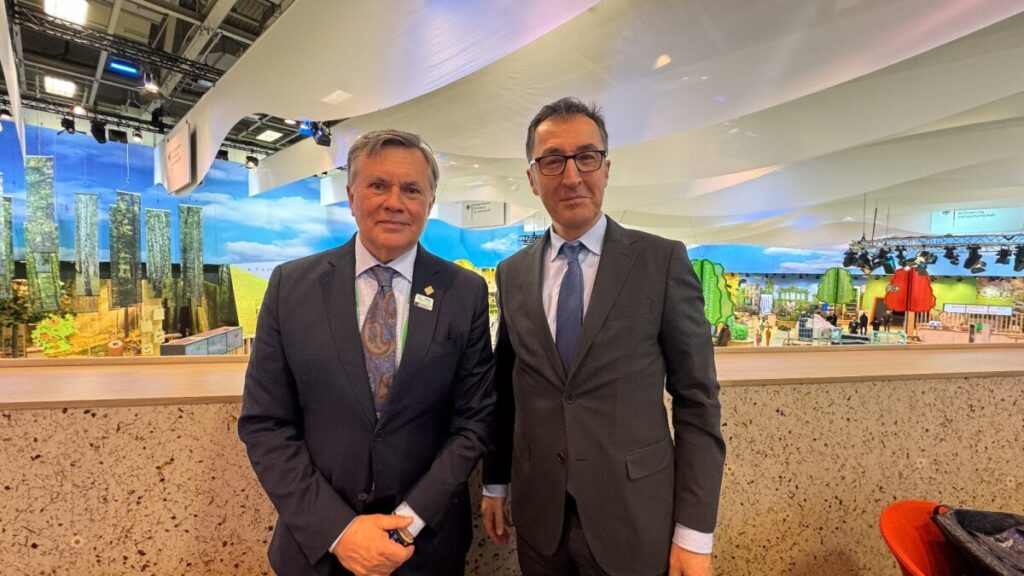Victor M. Villalobos made a call at GCARD2 for greater alliances, modernization of research entities and improvement in extension services in order to strengthen agriculture in the Americas.

Punta del Este, Uruguay, October 30, 2012 (IICA). Speaking before an audience of 600 researchers, the Director General of the Inter-American Institute for Cooperation on Agriculture (IICA) proposed the establishment of a global alliance for the development of family agriculture and a common agenda to support research, extension and innovation in agriculture in the Americas. These proposals were well received by the participants at the most important international meeting on this topic, which is being held this week in Punta del Este, Uruguay.
Victor M. Villalobos also called for the implementation of a strategy to support the modernization of national agricultural innovation systems in the hemisphere, as well as national research institutes, to enable them to become true platforms for supporting producers and contributing to strengthening agriculture in the region in the face of current challenges such as food security and climate change.
In Latin America and the Caribbean, “we are witnessing an agricultural paradigm of greater productivity, sustainability and inclusion, and in this new paradigm research and innovation are vital,” stated Villalobos at the Second Global Conference on Agricultural Research for Development (GCARD2), which began on October 28, and will end on November 1.
The Director General participated in a panel discussion on challenges and opportunities for innovation in order to generate positive impacts on small-scale agriculture. Other panelists included Carlos Sere, from the International Fund for Agricultural Development (IFAD); Esther Penunia, from the Asian Farmers Association for Sustainable Rural Development (AFA); Alexander Müller, from the Food and Agriculture Organization of the United Nations (FAO), and Sujiro Seam, from the Ministry of Foreign and European Affairs of France.
GCARD2 is organized by the Global Forum for Agricultural Research (GFAR), an organization that brings together six international entities working in this area. IICA is responsible for the Technical Secretariat of one of these platforms known as the Forum for the Americas on Agricultural Research and Technology Development (FORAGRO).
Innovation, networks and alliances
According to Villalobos, “Innovation in agriculture must involve all the actors, both public and private alike. It will also be more efficient if the national systems and institutions are strengthened, which is one of IICA’s firm goals.”
By way of example, he mentioned the INNOVAGRO Network, via which some 60 organizations linked to national agricultural innovation systems within the hemisphere share their successful experiences. He also mentioned well-known cooperation programs such as PROCI, which are regional platforms for agrifood technology integration which seek to respond to the needs of the countries. All the PROCIs are linked to international research entities.
He added “Confidence is what drives the work of the networks and alliances.”
The Director General of IICA urged the researchers and representatives of international organizations to consolidate the leadership of GFAR in international agricultural research, through alliances with the private sector and groups of family farmers. Additionally, he called for strengthening of IICA’s alliance with the institutes of the Consultative Group on International Agricultural Research (CGIAR) which operate in the Americas (IFPRI, CIMMYT, CIAT and CIP), by means of greater research in the region.
“We must broaden and deepen south-south cooperation and disseminate new alliances between the public and private sectors for research and extension activities in the hemisphere, a task that as international and technical entities we can carry out in a coordinated manner,” stated Villalobos.
For more information, contact:
arturo.barrera@iica.int










